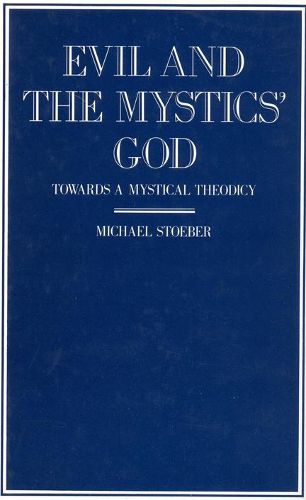Readings Newsletter
Become a Readings Member to make your shopping experience even easier.
Sign in or sign up for free!
You’re not far away from qualifying for FREE standard shipping within Australia
You’ve qualified for FREE standard shipping within Australia
The cart is loading…






Theodicies are systems of philosophy that attempt to rationalize the existence of evil in a God-centred world. They do not normally take into account the responses to evil by mystics, those who claim that truth can be attained by spiritual as well as by intellectual experience. Michael Stoeber analyses the contribution that mystical thought makes to establishing a reliable theodicy. Among the authors whose works he discusses are Dostoevsky, Leibniz, Voltaire, Hume, Kant, Meister Eckhart and Evelyn Underhill.
The problem of evil is given an effective religious explanation only by arguing that evil is necessary in fulfilling some divine telos or purpose. But the best non-mystical teleological responses possess serious defects, difficulties which are overcome in theology that proposes a mystical telos. This teleology involves evidence which justifies theodicy, as well as a strong pastoral thrust. Moreover, it explains the impulse to evil in human natural in terms of a divine theogonic process which distances God from evil and accounts for evils which do not serve the mystical telos through the doctrine of soul-making rebirth. Stoeber holds that mystical theodicy provides a coherent and cogent response to the problem of evil.
$9.00 standard shipping within Australia
FREE standard shipping within Australia for orders over $100.00
Express & International shipping calculated at checkout
Stock availability can be subject to change without notice. We recommend calling the shop or contacting our online team to check availability of low stock items. Please see our Shopping Online page for more details.
Theodicies are systems of philosophy that attempt to rationalize the existence of evil in a God-centred world. They do not normally take into account the responses to evil by mystics, those who claim that truth can be attained by spiritual as well as by intellectual experience. Michael Stoeber analyses the contribution that mystical thought makes to establishing a reliable theodicy. Among the authors whose works he discusses are Dostoevsky, Leibniz, Voltaire, Hume, Kant, Meister Eckhart and Evelyn Underhill.
The problem of evil is given an effective religious explanation only by arguing that evil is necessary in fulfilling some divine telos or purpose. But the best non-mystical teleological responses possess serious defects, difficulties which are overcome in theology that proposes a mystical telos. This teleology involves evidence which justifies theodicy, as well as a strong pastoral thrust. Moreover, it explains the impulse to evil in human natural in terms of a divine theogonic process which distances God from evil and accounts for evils which do not serve the mystical telos through the doctrine of soul-making rebirth. Stoeber holds that mystical theodicy provides a coherent and cogent response to the problem of evil.